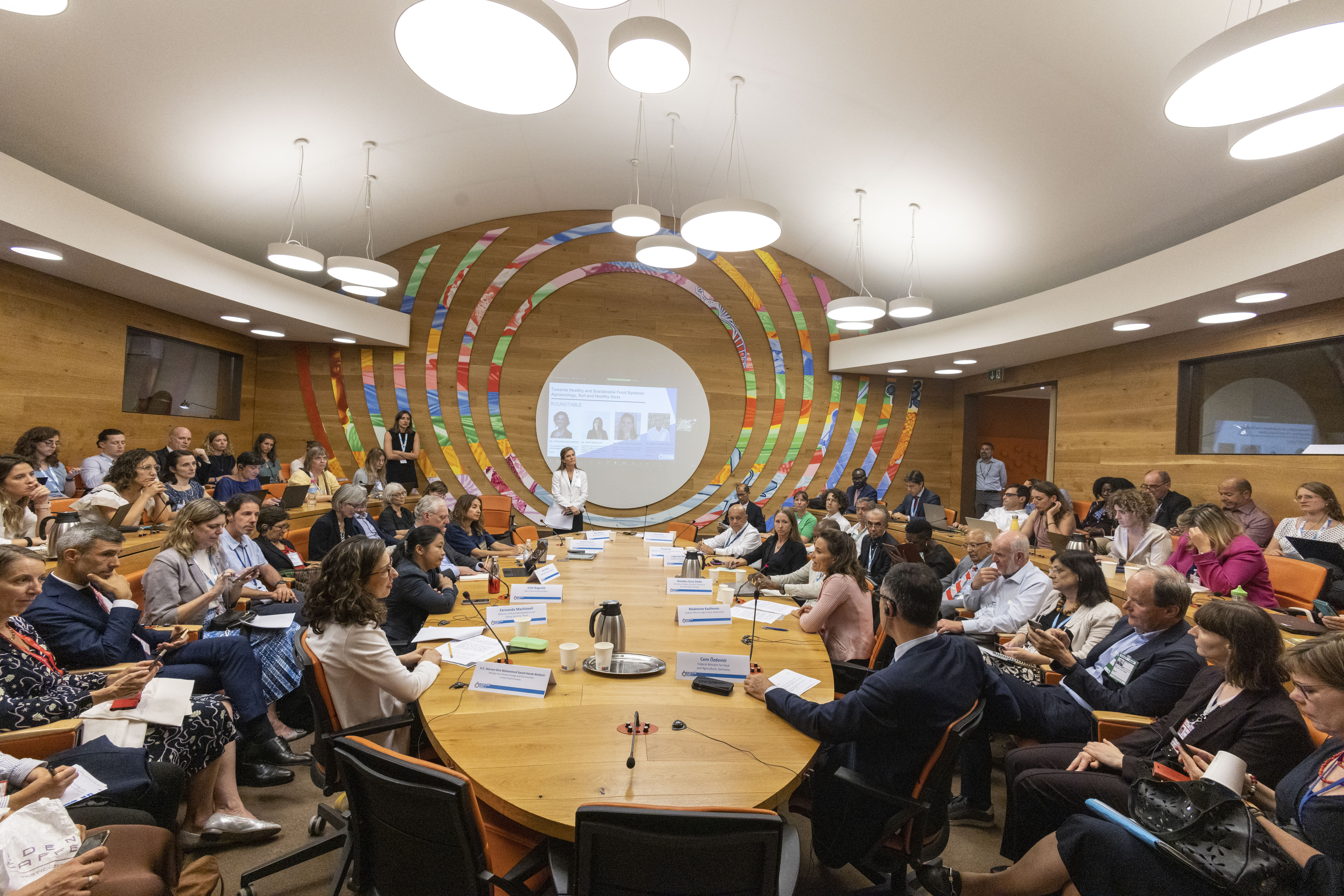
Global challenges of food insecurity and malnutrition - driven by climate, biodiversity and socio-economic crises and conflicts - require urgent and collective action and coordination among multiple actors, including city, subnational, and national governments, along with civil society, academia, and the private sector.
The recent Side Event that took place in the framework of the UN Food Systems Summit +2 Stocktaking Moment in Rome, on 24 July 2023 - led by the Urban Food Systems Coalition, the Local2030 Coalition and the Politecnico di Milano with the support of 20+ partners - brought together experts and leaders to discuss how interconnected and innovative solutions can pave the way for transformative food systems that cater to the needs of all, leaving no one behind.
Lawrence Haddad, Executive Director of the Global Alliance for Improved Nutrition (GAIN), emphasized the significance of cities in addressing food systems, especially when it comes to food insecurity and nutrition, given their high food demand. This requires both horizontal coordination within urban and rural areas and vertical coordination between regional, national, and local entities. Urban-rural linkages are essential for fostering strong, inclusive, resilient and sustainable food systems that provide healthy, diverse and environmentally friendly diets.
The discussion, moderated by Jane Battersby, Senior Lecturer at the University of Cape Town, focused on two main questions, as per the perspective of different actors:
Mohamed Sefiani, Mayor of the City of Chefchaouen and President of the United Cities and Local Governments (UCLG) Forum of Intermediary Cities, highlighted the importance of collaboration between national governments and municipalities. He stressed three main ideas: local authorities' pivotal role during crises, multi-actor collaborations for inclusive resilience, and the significance of partnerships in ending hunger by 2030. Strengthening public governance, involving the third sector, academia, and the private sector, are also crucial in addressing food insecurity comprehensively.
As a representative of the Resilient Local Food Supply Chain Alliance, Giaime Berti emphasized the need for sustainable urban food policies, which can impact the entire food system from production to consumption. However, the focus should extend beyond just urban centers and consider the entire territory; equal attention should be given to the food environment in both urban and rural areas. Building a reciprocal alliance between cities and the countryside is essential to ensure a fair and local supply chain and improve the living conditions of both farmers and urban dwellers. Therefore, multilevel governance model to bridge the gap between urban and rural regions becomes crucial to enable a transformative environment.
Multistakeholder and cross-sector partnerships were also a strategic feature of the interventions shared by Giulia Bartezzaghi, Director of the Food Sustainability Lab at Politecnico di Milano. She emphasized the key involvement of academia, local governments, civil society, and businesses, who mobilize a unique set of resources and capabilities towards the same goal. These partnerships can play a critical role in food recovery and redistribution in cities, addressing food insecurity while also tackling food waste. Universities, as facilitators and promoters, can bring diverse expertise to, and learn from these initiatives, promoting a systemic change in the urban food landscape.
Maria Renata Siqueira, Cofounder and President of Pacto Contra a Fome, highlighted Brazil's food system challenges, such as food loss, food waste, and food insecurity. Pacto Contra a Fome aims to mobilize society to fight hunger, underscoring the role of public governance, non-governmental organizations, academia, and the private sector. By working together, these actors can identify and scale up sustainable solutions to address hunger and malnutrition in all its forms in both urban and rural areas.
Lastly, Tidjani Hassoumi, Director of Environment and Landscape at Niamey Municipality, shared several initiatives aimed at enhancing food access through resilient food systems. A pilot project connecting small-scale producers and urban markets in Niamey demonstrates the potential to strengthen farmers' supply chains and promote resilient and sustainable production and healthy diets. Such projects create bridges between food waste reduction, food and nutrition security, and landscape conservation and management.
This side event showcased the significance of cities in driving transformative food systems and underscored the need for collaboration among diverse stakeholders. Multilevel, multistakeholder approaches are essential for creating inclusive, resilient and sustainable, food systems that cater to the needs of all populations. By working together, governments, civil society, academia, and the private sector can foster positive change and ensure food and nutrition security for present and future generations. The actions shared during this event can inform, inspire and further accelerate the implementation of food system pathways and policies into practical, inclusive delivery to pave the way for a better, more sustainable future for all.
This story was originally published here

Comments